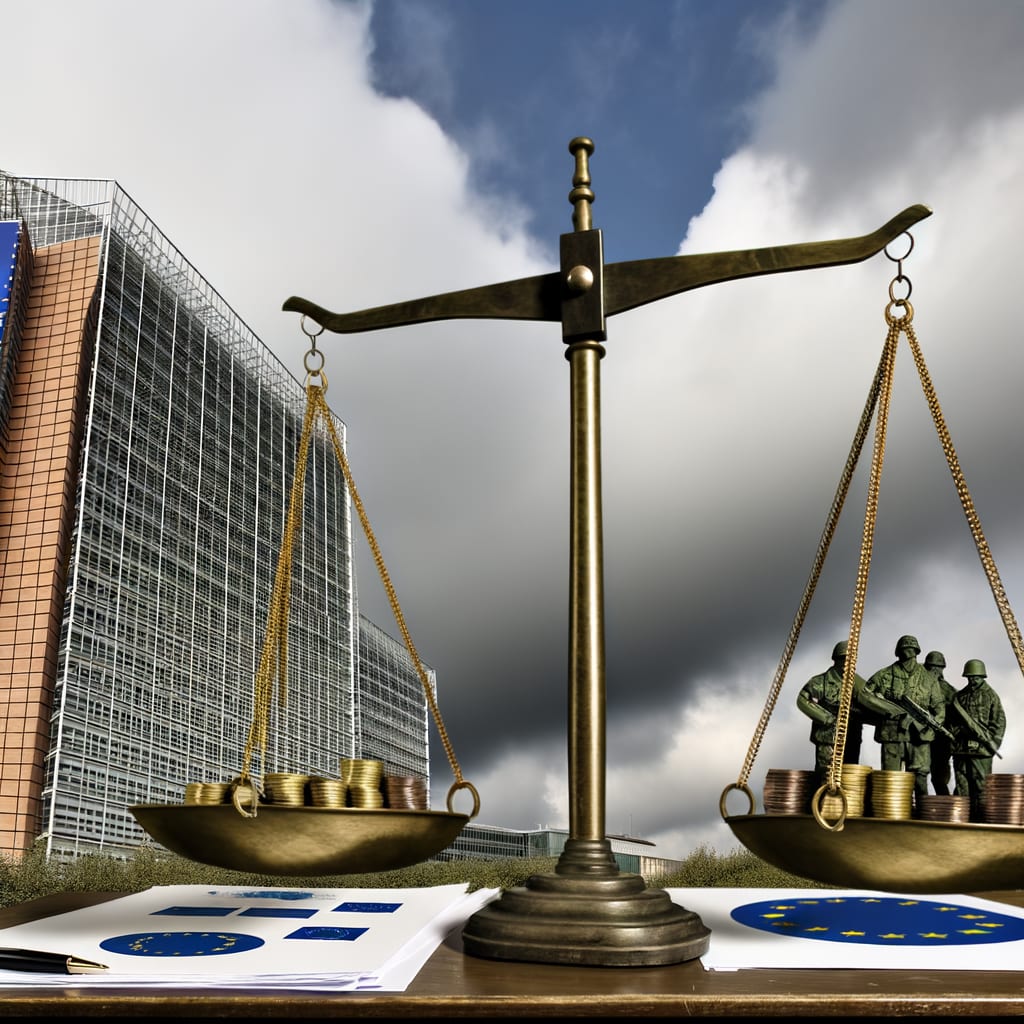EU Bows to US Trade Demands Amid Fears of Military Withdrawal, Critics Decry 'Capitulation'
In a recent agreement between the European Union and the United States, the EU has accepted a 15% tariff on most of its exports to the US. The decision, which some have labeled as a 'capitulation' to President Donald Trump's demands, came amid fears that the US could reduce military aid to Ukraine or withdraw its forces from Europe.
Background and Context
The agreement was finalized on July 28, following months of negotiations between US President Donald Trump and European Commission President Ursula von der Leyen. The pact imposes a 15% tariff on most EU exports to the US, while the EU has agreed to buy $750 billion in US energy and invest $600 billion in the American economy over the next three years12.
Key Developments
The EU's acceptance of the tariffs, according to reports by the Sunday Times, was driven by von der Leyen's fear that Washington might reduce military support for Ukraine or even withdraw American forces from Europe1. This fear, coupled with Trump's threat to raise the tariffs to 30%, led to the EU backing down from its initially planned strong countermeasures1.
In addition, there are concerns that the EU will be unable to meet its commitments under the deal, with former EU foreign policy chief Josep Borrell questioning the bloc’s capacity to purchase the promised volume of American natural gas1.
Reactions and Implications
Critics of the trade deal have slammed it as a 'surrender' and a sign of the EU's weakness. Thorsten Polleit, a German expert and former Chief Economist of Degussa, doubts the EU's ability to make European companies commit to investing $600 billion in the American economy2. Borrell, too, has expressed similar concerns, describing the deal as a 'European capitulation'2.
However, Goldman Sachs believes that the best possible agreement was reached under the circumstances3.
Conclusion and Current Status
As it stands, the American signature is still missing on the agreements signed in Scotland3, and the final list of levies on foreign goods is set to take effect on August 11.
The trade deal underscores the ongoing power dynamics in international trade, with President Trump using the 'Art of the Deal' approach to get other nations to hand over cash to lower their tariffs4. As the global community adjusts to these changing market conditions, the long-term economic and political implications of the EU-US trade deal remain to be seen.

